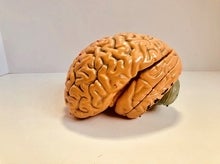Background
The global Transcranial Magnetic Stimulator (TMS) market was valued at USD 883.38 million in 2018 and is anticipated to grow at a CAGR of 9%, reaching 2.1 billion by 2026. Increasing prevalence of neurological disorders (e.g., Alzheimer’s, Parkinson’s disease) and psychiatric disorder (e.g., depression, anxiety disorders), along with increasing awareness about TMS among professionals are few factors driving this growth.
TMS is the most adopted widely used method for brain stimulation. It is non-invasive and uses magnetic induction forces focusing on a particular area of the brain. Repetitive TMS (rTMS) is a type of transcranial magnetic stimulation that is expected to be the fastest growing segment since it has shown promising results for the treatment of various psychiatric disorder such as unipolar depression, schizophrenia, and bipolar disorder.
Description of the invention
CCaRT is a standardized protocol, software and apparatus for the assessment of an important parameter of brain health—cortical resilience—using a combination of inhibitory transcranial magnetic stimulation (rTMS), time-lagged cognitive testing and functional near-infrared spectroscopy (fNIRS). The paradigm involves cognitive testing before and after brain stimulation to quantify the initial suppression effect followed by subsequent time-locked measurements of recovery. This novel metric can provide meaningful information by constructing a normative database with which to compare the percentage value generated. Interpretive reports prepared via cloud based on this metric will provide more value particularly in clinical settings.
Currently, there are no other solutions that can identify a brain health parameter that is not already routinely assessed. Waterloo’s technology (protocol) is the first technology to make use of rTMS for identifying this specific brain health parameter (cortical resilience). The diagnostic potential of CCaRT is substantial in relation to neurological and psychiatric disorders that affect the brain, and there are numerous research applications. The CCaRT system stands to expand the use rTMS in both clinical and research markets.
Advantages
- Brain health assessment with norm-referenced outcome comparison.
- Automated cognitive assessment.
- Easy to use in clinical settings where services are billed, or in clinical research contexts (e.g., clinical trials, longitudinal studies).
Potential applications
- Clinical diagnostic purposes (e.g., diagnosis of mild cognitive impairment, early stage dementia, concussion), and for tracking disease progression among those suffering from illnesses that impact cortical functions (e.g., Types 1 or 2 diabetes, hypertension), especially the executive functions.
- The protocol has potential utility in experimental, longitudinal studies and clinical trial research contexts, and healthcare environments (e.g. hospitals, clinics, etc.)

Reference
10164
Patent status
Patent filed in US and Canada
Stage of development
Prototype developed, looking for
industry partners to validate results
Contact
Scott Inwood
Director of Commercialization
Waterloo Commercialization Office
519-888-4567, ext. 33728
sinwood@uwaterloo.ca
uwaterloo.ca/research